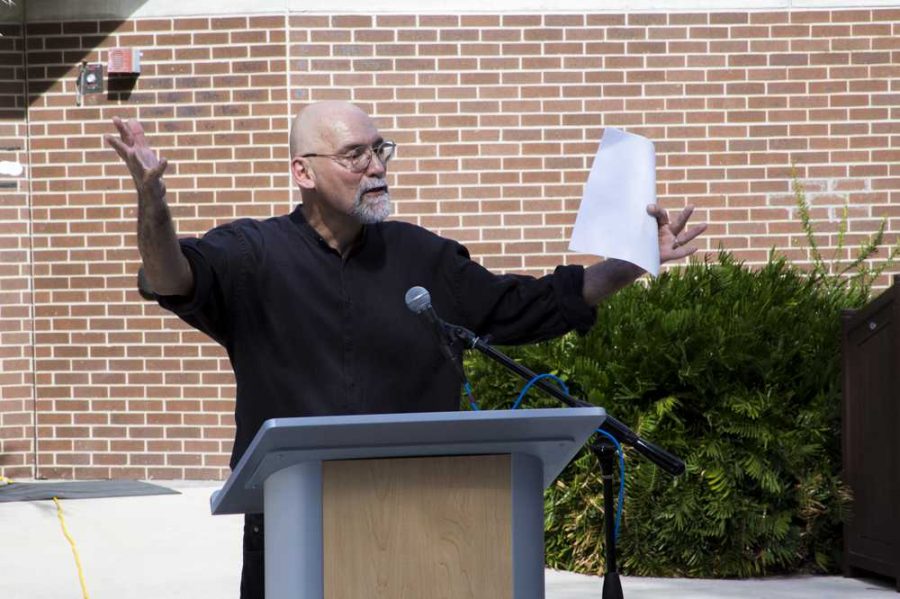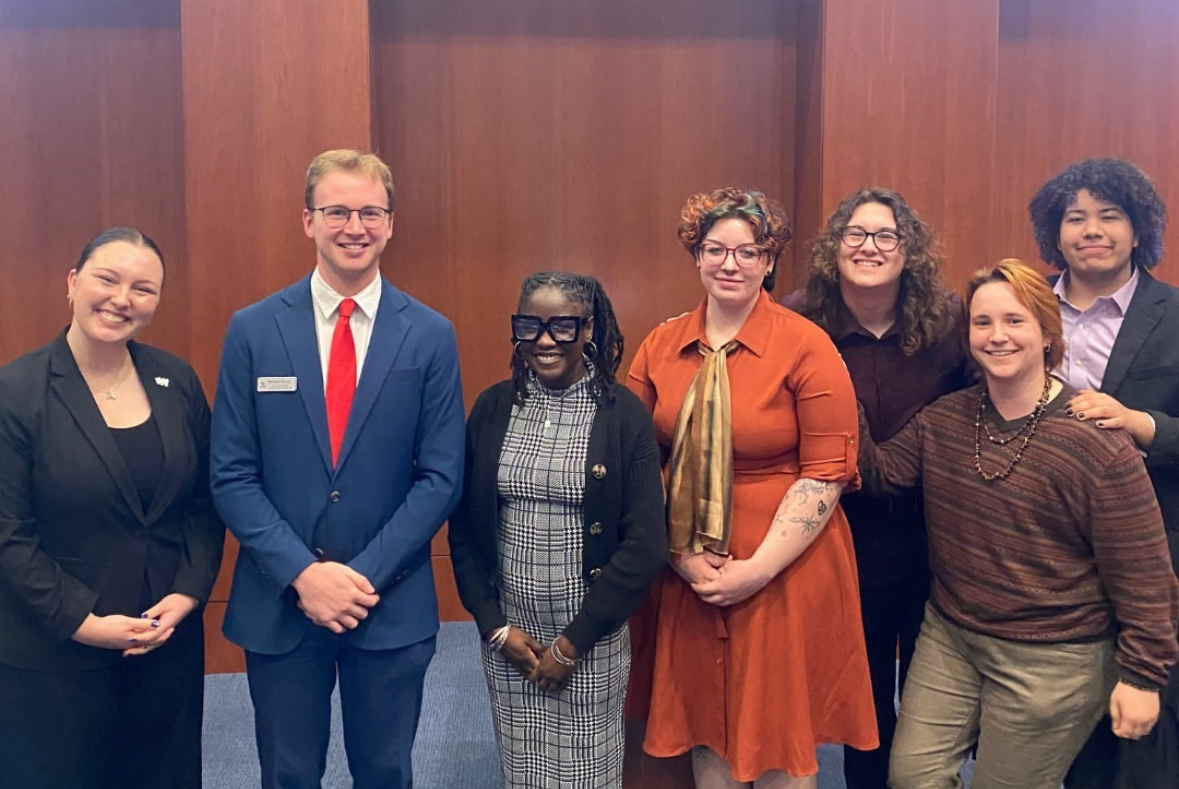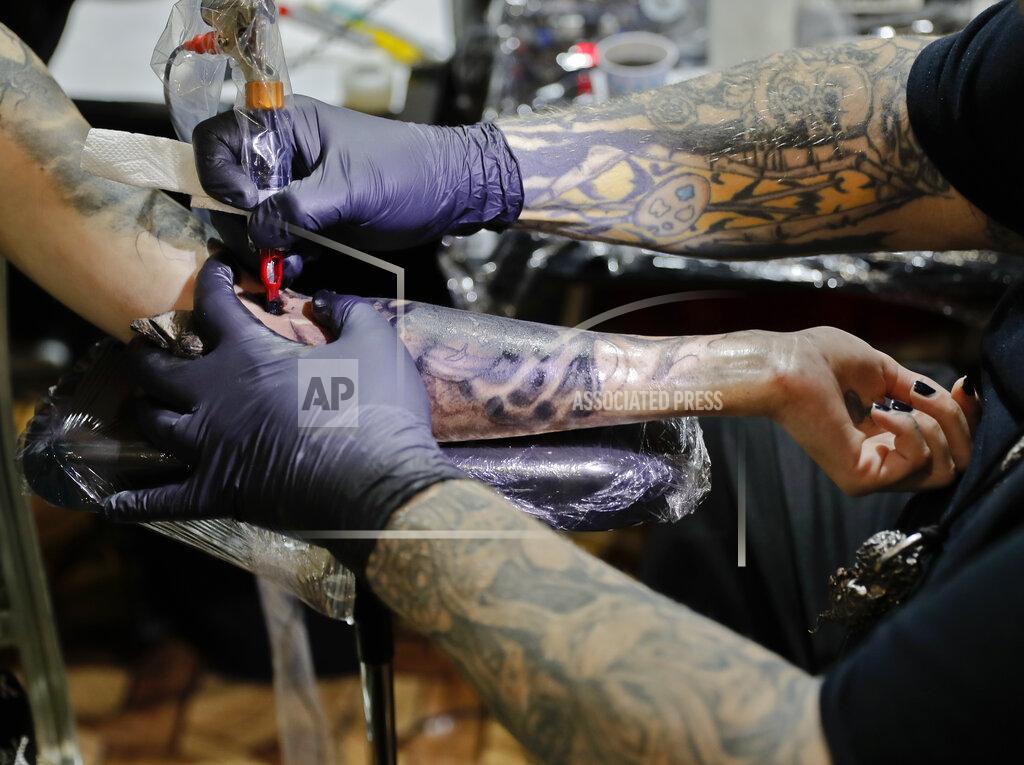A few years ago, Jason Smith, an undergrad majoring in computing and information sciences, wanted to keep his head down. Then after looking at careers, he saw he could make a difference in the world using data. Smith created VRvisu, a virtual reality tool that visualizes brain tumors in a 3D diagram.
“I started to realize the importance of data, and just the potential for making a difference that data has,” Smith said. “Another thing that caught my attention was virtual reality. I kind of wanted to see if I could combine the two.”
It started when UNF assistant professor Sandeep Reddivari assigned a project that involved programming. Smith’s original goal for VRvisu was to be a data visualization tool, where a user could see and interact with large amounts of data.
The user would put on the headset, and they would be transported into a virtual space. In this virtual space, the user can see a 3D scatterplot of red and white tumors. The white tumors are the tumors Smith was able to recreate himself. The red tumors are the tumors that Smith was unable to replicate due to either MRI images being too blurry or because they were too difficult to recreate. One of the many setbacks he faced was recreating the tumors in 3D while keeping them accurate.
“I’m not a graphic designer at all,” Smith said. “I can barely draw a stick figure. So, having to come up with a way to recreate those tumors and keep them accurate was quite a bit of a challenge.”
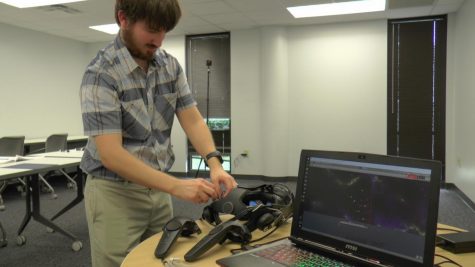
Users can grab any tumor from the plot with their bare hands to get a good look of it. This gives doctors a better understanding of the tumor, and how to deal with it. If a user touches the tumor with their left hand, a note with all the information about the tumor and the patient appears.
Smith was inspired to create this tool after reading an article online about a man with cancer. The man had a very invasive brain tumor, and he used his background in 3D printing in order to recreate the tumor, his brain and skull for doctors to practice on.
“After I saw how that was being used, I was thinking, why couldn’t the same thing be done in VR?” Smith said. “Everyone kind of relates to cancer as well as the severity of it.”
After discussing it with Reddivari, he decided to name it VRvisu, as visualization is a recurring theme among his professor’s projects.
Virtual reality isn’t cheap. Smith needed equipment, so with Reddivari, he sent a request for a $1,000 grant to the UNF Office of Undergraduate Research. That money covered the cost of the HTC Vive headset, stands for the sensors and the Leap Motion Controller, which is a sensor put in front of the headset to track your hands in VR without the use of controllers.
It took Smith four to five months of coding to get the program to where it is now.
“A lot of the time spent was learning everything as I went,” Smith said.
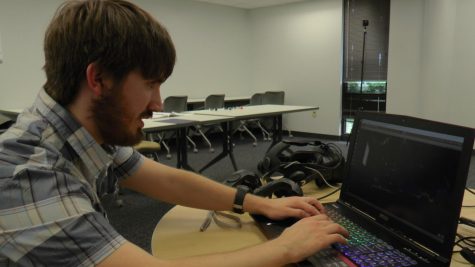
He found a way to to use Unity, a software framework generally used to create or develop video games, along with VR packages from Valve, which are used to modify various VR programs to get everything to work.
Smith expects other students to expand on VRvisu as he made it open-source for anybody to use. He even made it as user-friendly as possible to make it easier for other students to contribute. Reddivari is already looking for more students to work on the project.
Smith plans on having the program work with multiple users. That way, two people can connect to the same VR space over the internet to collaborate with all of the data in front of them.
Smith has also started working on a way to create a gene clustering visualization where you can find different traits of people based on their DNA. He has set up over 6,000 data points, but it turns out that the data was too much for the program to handle at the moment. So for now, it’s been put on hold.
“I really see less of virtual reality and more augmented reality,” Smith said. “I think AR might play more of a role in data visualization and scientific aspects.”
Smith, who will graduate in December, completed an internship with the Florida Data Science for Social Good, which works with several nonprofit organizations in Northeast Florida.
__
For more information or news tips, or if you see an error in this story or have any compliments or concerns, contact editor@unfspinnaker.com.








